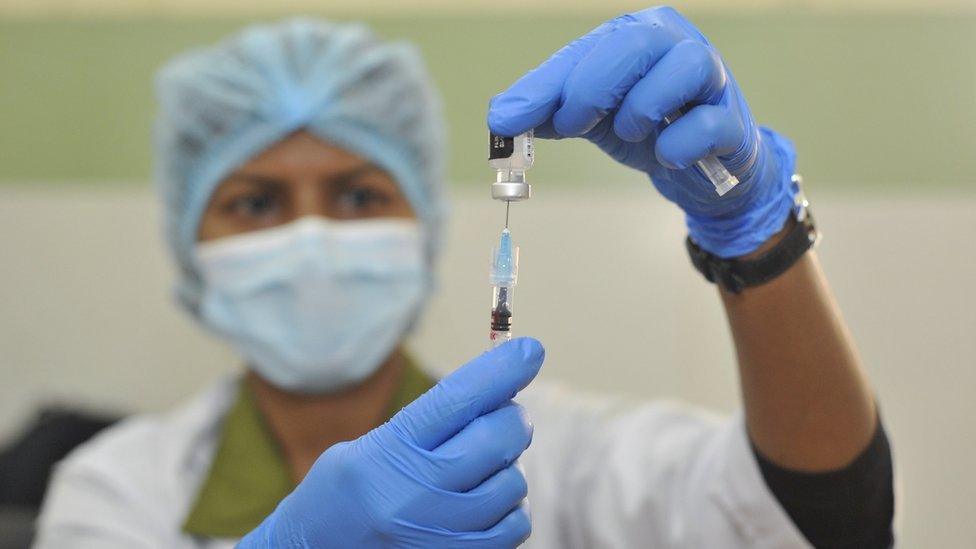Covid: Omicron data prompts fresh call to get booster jab
- Published
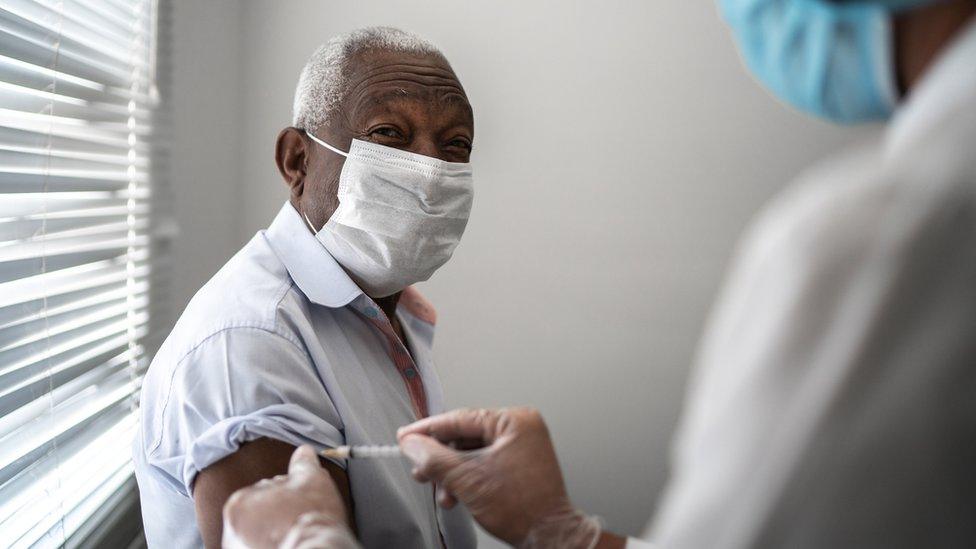
Health officials have renewed their call for everyone eligible to come forward for a Covid booster jab.
It comes after early analysis, external by the UK Health Security Agency showed a third vaccine dose prevents about 75% of people from getting any Covid symptoms.
The Omicron variant is spreading so quickly everyone is likely to come into contact with an infected person in the next few weeks, a scientist said.
From Wednesday, care home residents will be limited to three visitors.
On Friday face coverings became compulsory in most indoor venues in England, including theatres, cinemas, places of worship, museums and indoor sport stadiums, under measures to tackle the Omicron variant.
It came as the UK reported 58,194 new Covid cases, including 448 of Omicron. But the real number is estimated to be much higher.
Prof Eleanor Riley, professor of immunology and infectious disease at the University of Edinburgh, told BBC Radio 4's Today programme Omicron appeared to be so infectious that "you have to work on the basis that anyone you come into contact with has it".
She said if someone had taken a lateral flow test and been negative for the virus "within the last few hours" then they could be a little more confident.
"I think Omicron is spreading so quickly that... unless you are living like a hermit you are very likely to come across it in the next few weeks, I don't think anyone should be going around thinking they are not going to catch it... that situation has changed," she said.
Asked about whether the variant might be milder, as anecdotal accounts from South Africa have suggested, she said: "Even if it is milder and, therefore, a smaller proportion of infected people end up in hospital, given that so many people are going to come across this virus, even a small proportion of a lot of people is a lot of people in hospital."
GP Dr Sarah Jarvis told BBC Breakfast that when invited for the booster jab people should "please, please, please come in".
"Omicron, unfortunately like every other coronavirus variant, loves winter, loves it when we are spending more time indoors, less ventilation and it particularly loves it when we are getting together with other people as we will do at Christmas," she said.
Prof Peter Openshaw, an immunologist as Imperial College London, told BBC News Omicron was an "extraordinarily infectious virus".
While vaccines would probably be very effective against severe disease, he said, people cannot just rely on them and also have to take measures such as wearing a mask.
Prof Linda Bauld: Festive restrictions are "possible" but hopeful it won't be "repeat of last year"
In Scotland, household contacts of people who have tested positive for Covid are now being asked to isolate for 10 days - regardless of their vaccination status or if they have had a negative PCR result.
In Wales, the Welsh government is urging members of the public to take a lateral flow test before going shopping or to Christmas parties.
Officials in Northern Ireland are not planning to extend restrictions over the festive period but further restrictions may be reintroduced in the new year.
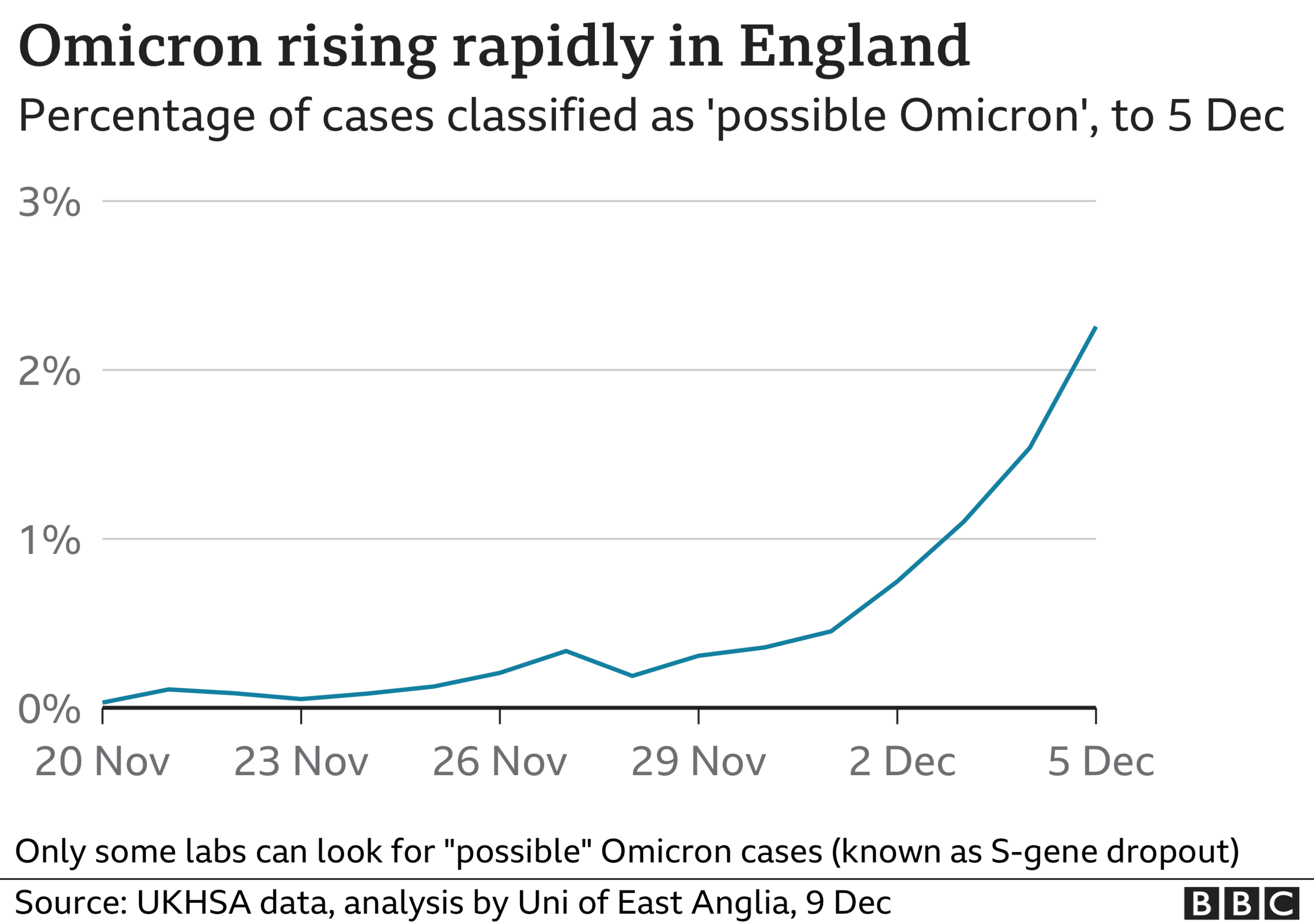
Levelling Up Secretary Michael Gove, who chaired a meeting with first ministers of the devolved nations on Friday, said the UK faces a "deeply concerning situation", with anti-infection measures being kept under review.
He said action taken so far in England was "proportionate", but ministers were "absolutely" keeping everything under review.
However, more Conservative MPs have suggested they will vote against the government's latest Covid restrictions in England when they are put before parliament on Tuesday.
The BBC estimates that, from public pronouncements, 57 Conservative MPs might vote against the measures. They are still likely to pass because Labour has said it will support them.
Friday's increase in Covid cases was the biggest since 9 January - it is estimated that Omicron cases are doubling every two to three days.
The UK Health Security Agency estimates that more than half of all cases in the country will be Omicron by mid-December and that if growth continues unabated there will be more than 100,000 cases a day by the end of December.
It analysed data from 581 Omicron cases and thousands of Delta cases to calculate how effective vaccines were against the new variant.
The analysis is based on limited data but showed a dramatic drop in effectiveness for the Oxford-AstraZeneca vaccine and a significant drop off for two doses of Pfizer.
The 75% protection against Covid symptoms after a booster is not as high as against previous variants.
Dr Mary Ramsay, head of immunisation at the agency, said: "These early estimates should be treated with caution but they indicate that a few months after the second jab, there is a greater risk of catching the Omicron variant compared to Delta strain."
She added: "We expect the vaccines to show higher protection against the serious complications of Covid-19, so if you haven't yet had your first two doses please book an appointment straight away."

IN THE END, ALL THE MATTERS IS WHO BELIEVES HIM: A young man fights to prove his innocence
WHAT NEXT FOR BARBADOS?: Life in the world's newest republic

Related topics
- Published11 December 2021
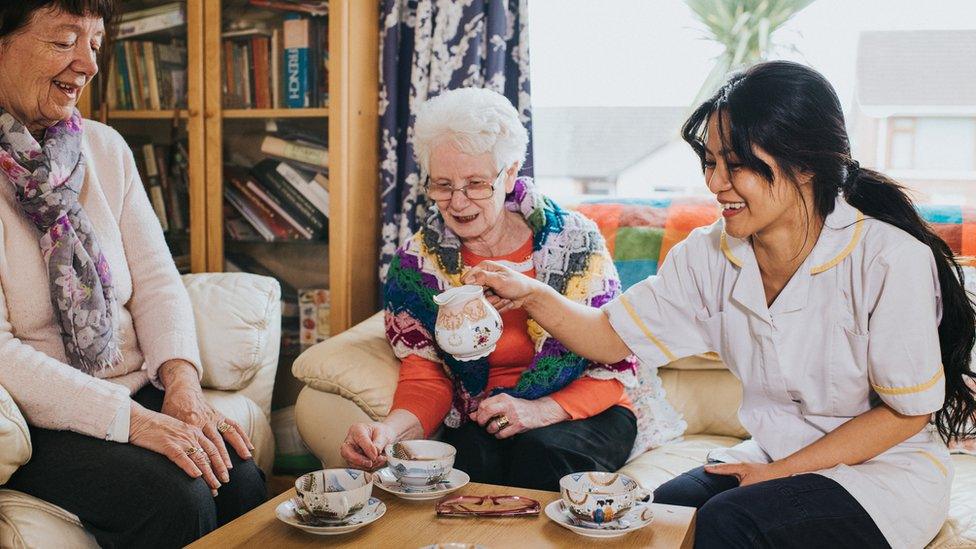
- Published10 December 2021
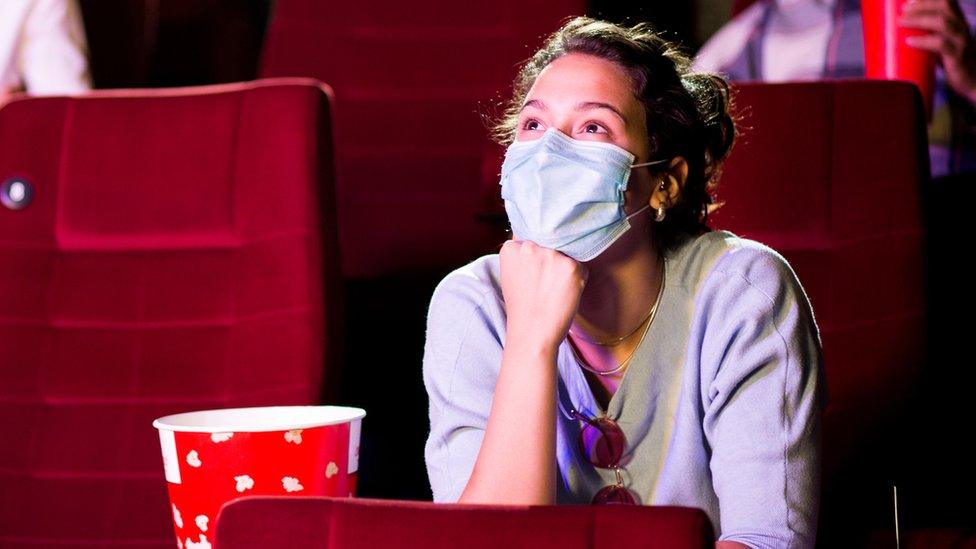
- Published8 December 2021
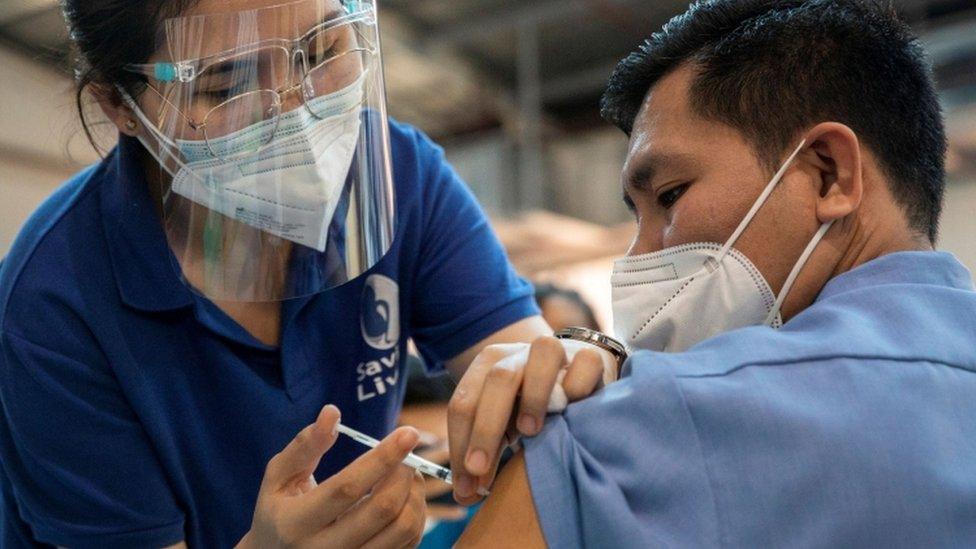
- Published8 December 2021
